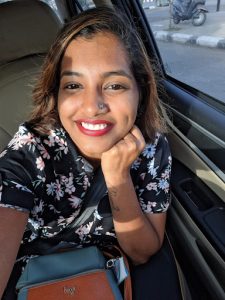In search of a correct diagnosis
In Search of the Right Diagnosis
In 2008, one Sunday afternoon, in a city in Andhra Pradesh, Ravi, a three-year-old, was playing with his friends when his mother first observed his difficulty in climbing stairs. As days passed, his mother noticed that he was losing his ability to raise his hands above his shoulder and frequently fell while he walked. His parents, who were doctors themselves, saw these signs and consulted a pediatric neurologist. After a few regular tests, Ravi was suspected to have muscle weakness.
Ravi was a healthy newborn, achieving his growth milestones until age three. As he grew older, his motor abilities deteriorated. He is now wheelchair-bound. Ravi’s sister, Geetha, also showed the same signs when she was 2.5 years old. With this observation, the parents looked harder for a diagnosis. They consulted many doctors until they suspected this could be a genetic condition. They were baffled because no one in their family had ever suffered from muscle weakness or muscular dystrophy.
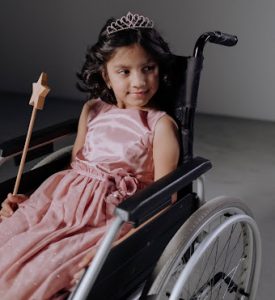
Source: Stock image (per patient’s privacy preference)
Muscular dystrophy is a common term for a group of genetic conditions that cause progressive weakness and, thus, muscle loss in the body. Due to the progressive loss of muscles, children usually find it difficult to move, making everyday tasks difficult. Genetic conditions like this present themselves in children as a consequence of marrying second cousins or closer blood relatives, also referred to as a consanguinous marriage. Ravi’s parents, Leela and Rajesh, are second cousins too.
As parents, Leela and Rajesh did their best to find the right diagnosis for their children. When Ravi was three-years-old, a pediatric neurologist from a reputed hospital in Hyderabad suspected he might have Spinal Muscular Atrophy (SMA). SMA is a severe genetic condition where the nerves connecting the spinal muscles weaken and get wasted (atrophied) due to the deficiency of a protein called SMN. This condition occurs in one out of 10,000 live-born babies in India. His blood samples were sent to a diagnostics lab for confirmatory tests. This probable diagnosis gave Leela a glimmer of hope. A hope that gave her a sense of direction to find treatments and see her children disease-free one day.
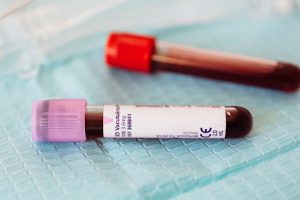
Blood samples collected in a vacutainer for testing. (Source: Stock Image)
Leela started joining patient support groups specific to SMA that helped her understand her children’s condition. These support groups were not only a space to find doctors or treatments, but it was also a safe space for parents to support each other, share their child’s progress, learn more about ongoing research, upcoming treatments, etc. This made Leela feel that she was not alone in this journey. She felt a sense of belonging.
However, this hope was short-lived. Ravi tested negative for all the tests for SMA. His parents were devastated. Not just because of the failed tests but also because they were again left with no diagnosis. They could no longer participate in the SMA-specific or other patient support groups. They did not know of any support group for an undiagnosed condition.
All this while desperately trying to find a diagnosis, the children had to go through some traumatic experiences. They were vexed with the way some doctors treated Ravi. One experience was scarring. “They took him in to take a biopsy sample for testing. After a while, I found the doctors using him as an object to explain his condition to a group of medical students even though Ravi was visibly distressed”, shared Leela, with a teary eye. She was traumatised by how the parents’ consent was not taken and was conveniently excluded from being a part of this process.
Ever since they have been particularly careful about choosing the right doctors. They consulted leading doctors and genetic counsellors in India. They tried every other related test that might lead to a diagnosis – from testing for individual genes to testing the entire genome (DNA) for any defects. It has been 13 years since, and they haven’t found a definitive diagnosis.
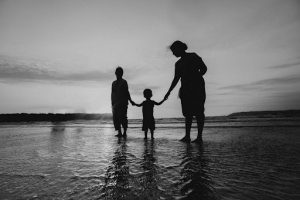
Source: Stock image
To date, Ravi and Geetha are progressively losing their mobility of all limbs and are wheelchair-bound. Regular physiotherapy is the only provisional treatment they both receive at present. Yet, all these physical barriers have not dulled their spirits. With only their head and neck mobile, Ravi and Geetha are acing their studies. Ravi is studying at one of the top National Law Universities, while Geetha aspires to be a programmer. The unlimited support extended by their school, friends and close relatives has stood the test of time, Leela says, helping her children not self-reject or discriminate themselves from others but identify themselves beyond their disability.
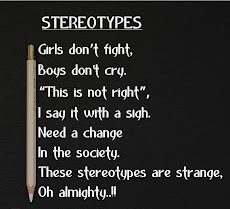
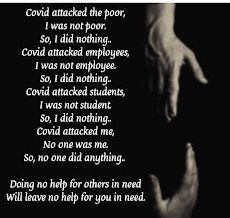
Some poetry by Geetha. Republished with permission
According to a Rare Disease Impact report published in 2013, the average time required to find the right diagnosis for a genetic condition in the US is about 7.6 years. Throughout this period, patients typically visit about 8 doctors and receive about 2 – 3 misdiagnoses before they have found the right diagnosis. Without a definitive diagnosis and also having had to leave the patient support groups, Leela was finding it hard to navigate the next steps. That was when she found us. IndoUSrare has become her guiding force in finding a diagnosis since then. Leela shares, “IndoUSrare has been very supportive since the beginning of our association. They have always had our back, offering available resources, and following up on our progress in finding a diagnosis.” Lack of data to correlate with observed symptoms has been the biggest impediment to a better and faster diagnosis. This is a systemic issue that needs to be addressed on a larger scale to improve a patient’s experience while looking for the right diagnosis. Irrespective of the diagnosis or the status of the diagnosis, IndoUSrare is on a mission to speed up finding diagnosis for patients and their families.
Note: The story has been published with the patient’s and family’s consent. Their names have been changed to maintain privacy per their preference.
Author Bio:
Suchitha Champak is a communications consultant in the Sciences and the Founder of SciRio. She has been working with academic institutes and individual scientists to help them communicate their research to people beyond academia. She is a TEDx speaker, and her story has been featured on online platforms such as The Assam Tribune and BioPatrika.
